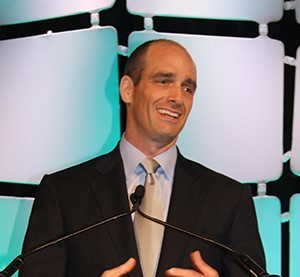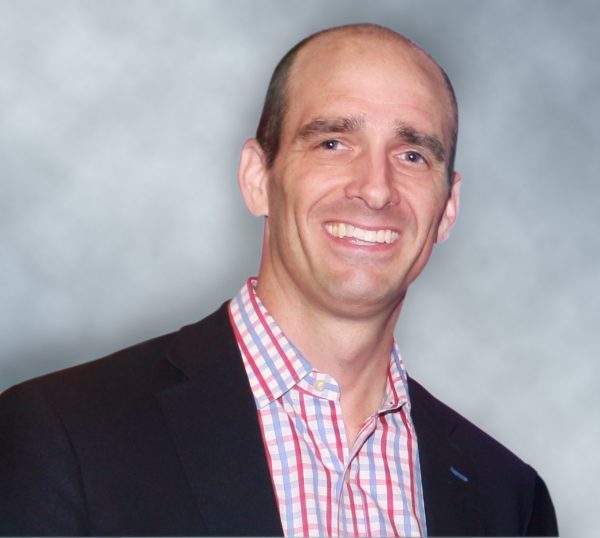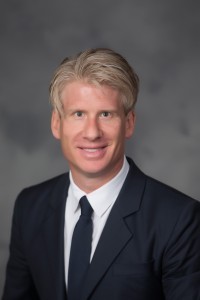This client interview is the first in a series for CO2 Partners. Our goal in conducting these client interviews is three-fold:
- We encourage self-reflection, and these interviews provide clients with a chance to consider why they sought coaching, what the process has meant to them, and what they might do next.
- As coaches, we want to learn more about what we do well and why, as well as how we can improve. This is a chance for our clients to instruct us and for us to do some self-reflection, too.
- Lastly, prospective clients often wonder what the coaching process is like and whether the time, effort, and money is worth it. These interviews may help answer some their questions or concerns.
Stuart Sneer is the first CO2 client we approached, and we’re extremely grateful that he agreed to be interviewed. Stu’s coach, Gary Cohen, was not present or on the line during this phone interview, which was conducted by Eric Vrooman, a writer/editor who has worked with CO2 for many years. Stu was provided the questions in advance, and his responses have been edited for clarity.
“The more time he (my coach) spends sharpening my ax the less time it takes me to chop the wood”
About Stu:
Stuart Sneer is a second-generation banker. His father founded United Prairie in 1973, and Stu joined in 1985. He has been with United Prairie ever since, working his way up to his current position as chairman of the board. In the process, he helped consolidate seven charters into one.
Stu’s motto is “I want to be a family owned, professionally run, community bank. No more, no less.” He is competitive on behalf of his coworkers, but not driven by financial self-interest. His lifestyle reflects these values.
How long have you been working with a CO2 executive coach?
“I’ve been working with Gary since January 2017.”
What led you to seek coaching, and why did you choose your particular coach?
“We sought coaching to help with dysfunction in the executive team—personality issues we were struggling with among executives, just not clicking well together. I wanted to be able to improve myself, too. I went into it, frankly, with very little expectations, but an open mind. Why wouldn’t you want to be coached? Even if you only got a little bit better. That was my attitude.”
“I worked at first with John. He thought I’d find a better fit with Gary, though, since Gary is also a business owner. I’m very happy with CO2. I’m a Gary guy. I believe in his methodology and his style.”
Early on, what fears, if any, did you have about working with an executive coach, and why?
“If I had a fear, it was exposing professional weakness. No one wants to think that they’re weak, especially if you’re at the top of the food chain. You can’t fail. You’re the corporate messiah, so to speak.”
What sort of return did you expect to get from coaching?
“I expected to be able to learn a few new leadership skills. I told Gary, the more time he spends sharpening my ax the less time it’s going to take me to chop the wood. There are different types of edges and files you have to use to get the job done–things you need to hone.”
How has your experience working with a CO2 coach met, exceeded, or departed from your expectations?
“When you’re in the client’s chair, you tend to think nobody has it as bad as me. Others do, of course, but you are unique. Gary works with you. With YOU specifically. Everything he does is customized to that person and that moment in time. And he offers multiple-choice solutions.”
“Gary has helped me improve my relations with employees and learn how to show up in a way that’s prudent to the situation I’m in. He helps you get over yourself and up your game. And that comes down to pride—pride in being the owner, in my case. Gary helped me flip the switch. I needed to quit apologizing for being the owner. I’m proud for being the owner now and better at asking for and listening to others.”
“If there was a measuring stick for the past year, I believe my confidence has risen. I feel more confident, more professionally ironed or starched.”
“Gary’s helped me beyond just a professional level. Much of his coaching carries on into personal life. I didn’t anticipate that.”
“I didn’t realize Gary’s company did strategic planning, and that definitely exceeded my expectations. The process was thorough and entertaining, and it wasn’t too painful. It’s always going to be somewhat painful. When I was told it lasted five days, I was like ‘you’re absolutely nuts’. By the end, though, we were thinking we could use a sixth day.”
“I consider Gary a friend, a confidant, someone I can trust. For me, that’s departing from the clinical, academic, classroom-type of coaching you might expect, using a checklist. He’s just a great guy who has a passion for what he does, for life in general, for mankind. In a good way, that departed from what I would have had as a mental picture, prior to starting coaching.”
While you’ve been working with CO2, what coaching strategies, philosophy, activities, and discussions open you up to change?
“Gary probably has a one-sentence strategy in mind when he starts a session. You’re not sure what you’re going to get, but you get it by the end. There’s something magical in what Gary does. He keeps things fresh, on point. There’s a mindfulness to his approach and demeanor. All of a sudden, I’m mindful of a lot of different things.”
What changes have you made as a result of executive coaching?
“I’ve shown up as a different person. Some of it’s intentional because I need to practice. Sometimes it’s because you’ve had an aha moment, and it just shows up organically.”
“I have more self-confidence particularly in an area I struggle with, confrontation. It’s not an area I want to play in very often, but when I do, I feel more confident about how I will show up, given my status. I’m more aware of trigger points for an outburst—and instead of speaking in those moments, I’ll try to think my way through them instead.”
“I’m developing a self-authoring type mindset. You remain balanced in a decision-making process so that the outcome is for the greater good and also satisfying for yourself or meets the needs you have. When there’s an issue, I gather several people to get a few answers to make one decision. During that process, you have to be aware of what you want, but flexible enough to hear other voices and move off your spot. Your idealized solution may morph into something different. You still get what you want, but that’s because you better understand what you want. You haven’t been manipulated or coerced. You remained true to yourself.”
If you’ve made changes as a result of coaching, how have those changes made a difference in your work and/or personal life? Please share specific examples.
“Sometime in late January of ’16, the CEO came to me and firmly said we needed a sales consultant. My immediate reaction was to shut down mentally because I heard the word ‘sales’. I had these preconceived negative feelings about that. I pretty much shot it down, and it sat on my desk for several months. As I worked with Gary, my mind opened up and I revisited that decision about sales training. Now we’re going ahead with that for our front-line people. And it’s had a positive effect. I was wrong. My original decision would have been wrong. As a result, we’re scoring some points—hanging a crooked number, as they say.”
Have others (at work or at home) remarked on changes you’ve made as a result of coaching? If so, what have they said or seen?
“Keep in mind, I’m always told what coworkers think I want to hear [as the chairman of the board], not necessarily what I need to hear. People will tell me to look at the shiny polish on the hood, not at the flat tire underneath. But I have truly changed, and my coworkers have noticed. ‘I like the new Stu,’ one said. That coworker and I have been friends since we were 13 years old, which made the compliment even more meaningful. She wasn’t referring, I don’t think, to a specific action or comment, but to a general change—how I’m taking an appropriate amount of pride in my work, not too self-deferential. As a result of coaching, I’m showing more compassion, more caring, too. I had those things, but they weren’t as close to the surface as they are now.”
How and when do you (or those you lead) still tend to get stuck at work?
“On the business side, we rarely get stuck anymore, thanks to a much better strategic plan, with true goals and metrics. Personally, where I still tend to get stuck as a leader is my lack of clarity. I speak using metaphors. I’m a generalist and concept person. I don’t want to say visionary, because it sounds like I’m patting myself on the back, but I see things. I get stuck not articulating well enough. I can give people the general idea, but they leave still wanting more clarity. That’s hard for me. It’s not naturally who I am…to be specific. There are storytellers and spreadsheet people; I’m a storyteller but need sometimes to show up as the spreadsheet guy. Gary can help me better recognize these moments.”
What is a strategy that you think might help, but haven’t tried?
“I need to stop calling audibles underneath center. Gary’s the coach. He’s got the playbook. I run to the sideline with Gary every other week, I get the game plan, and yet when I get back on the field I’m calling audibles all over the place. I need to stop doing that. Stick to the game plan more often, the advice that Gary gives. I try to do that, but my natural being doesn’t always go that way. It leads to good conversations, though. Gary will ask, ‘What did you see in the defense that made you do that?’ and we’ll explore the situation together.”
Does your coach do something that frustrates you or that you find not helpful? If so, describe.
“Gary and I had a little different time the other day. I was frustrated about some things. It got to a point where Gary said, ‘I’m not helping today, am I?’ We both realized he was right. Let’s take a timeout, we decided, and come back next time. Gary had asked a question, and I felt like I’d given enough of an answer. Gary tends to dig a bit deeper, to find the real source of the problem. The other day, enough was enough. Coaches need to recognize the saturation point. The saturation point is a moving target, but a good coach has to understand that enough is enough—and realize when the client is about to shut down. There are times quitting is more productive than pulling a muscle and being out of the game for longer. 9.5 times out of 10, Gary knows when you’ve reached that point and he’ll ask a diversionary question or lighten the mood in another way.”
Does the value or nature of coaching change over time? If so, how?
“The goal never changes, but the path might. A good coach will let the ‘how’ change. Gary’s techniques and strategies change even over the course of an hour and a half. At the end of the session, though, we get to the goal. All of a sudden he’ll say, ‘See? You’ve got it,’ and I will. I’ll see it for myself.”
“If the coaching doesn’t change, then you’re being dictated to. If it’s a cookie-cutter approach, that wouldn’t work for me. That’s too much of an academic approach. I appreciate flexibility and customization.”
If you were writing a book on coaching, what would be the main chapters? And what would be the main takeaway?
“The Art of Rigid Relaxation: How to maintain a sustainable, rigid state or frame of mind, but be relaxed and not let things bother you. By ‘rigid,’ I mean true to yourself. The goal is to remain nonjudgmental and caring, as the owner (in my case), and yet be self-authorizing. It shouldn’t feel forced. You shouldn’t be reading a script. It should come naturally and be your voice.
Chapter #1: Find yourself in the passion you have for what it is you’re doing. So many people get caught up in entrepreneurial euphoria and don’t remain true to themselves. I’ve seen passion carry people off track and lose themselves.
Chapter #2: Have your voice, but don’t be judgmental. Speak in a caring way. Genuine.
“The Art of Rigid Relaxation: How to maintain a sustainable, rigid state or frame of mind, but be relaxed and not let things bother you.”
Other possible titles:
The Madness of the Metaphorical Mind: Thinking metaphorically is fun and can drive you insane at the same time. Clear thinking can get muddled in examples that makes perfect sense (to the teller), but are nonsensical to others.
Screaming in a Hurricane: As a leader, you’re sometimes going to be standing out there in the blowing wind. People won’t be listening or hearing you. When you’re strong and confident, though, but also humble and approachable, you will be listened to and heard.
You’re the Common Denominator: How do you feel and respond when you figure out that you’re the common denominator—for the good, bad, and in between stuff. As leaders, we need to learn the extent of and own up to all of our responsibilities. We need to share more of ourselves, too.
A Special Interview by Stuart Sneer for CO2 Partners



